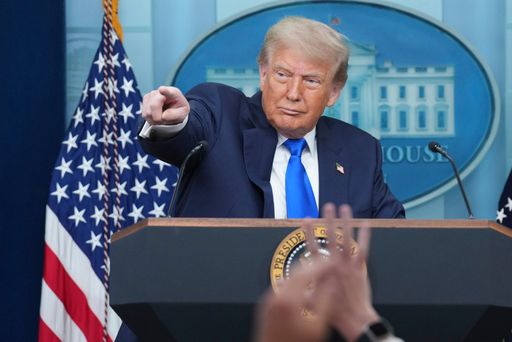Efforts by Senate Democrats to curb President Donald Trump's ability to launch further military aggression against Iran has failed, as most Republicans sided with the White House following last weekend's attacks on Iranian nuclear sites.
Friday's resolution, introduced by Senator Tim Kaine of Virginia, sought to reaffirm that Trump must seek authorisation from Congress before initiating new military attacks on Iran.
But it fell short in the Republican-controlled chamber, marking Congress' first serious attempt to reassert its constitutional role in decisions of war since the strikes.
Asked whether he would order more bombings of Iranian nuclear facilities if necessary, Trump replied bluntly: "Sure, without question."
Republicans hold a 53-47 majority in the Senate and have largely backed the president's approach, arguing Iran posed an imminent threat that justified swift action.
"Of course, we can debate the scope and strategy of our military engagements," said Republican Senator Bill Hagerty of Tennessee.
"But we must not shackle our president in the middle of a crisis when lives are on the line."
Democrats challenged that view, saying Trump bypassed Congress and failed to properly brief lawmakers until days after the attack.
"This is about making sure we don't go to war without a political consensus," Kaine said.
"If it's defence, act quickly. But if it's offence, let's really make sure we're making the right decision."
The measure would not have limited the president’s authority to respond to a direct threat, but it would have required congressional debate before launching offensive strikes.
Republican Senator Rand Paul of Kentucky broke with his party, backing the resolution and calling on others to do the same.

Trump.. the decision maker
Trump, like many presidents before him, has pushed the limits of the 1973 War Powers Resolution, which requires the president to consult Congress "in every possible instance" before deploying US armed forces.
In a letter to Congress this week, Trump described the Iran strikes as "limited in scope and purpose" and aimed at deterring future attacks.
But after classified briefings with top White House officials, some lawmakers remained unconvinced.
"There was no imminent threat to the United States," said Representative Jim Himes, the top Democrat on the House Intelligence Committee.
"There’s always an Iranian threat to the world. But this wasn’t materially different from two weeks earlier."
Despite such doubts, most Republicans stood firmly behind Trump’s decision.
Many said backing the resolution now would amount to undermining the president during sensitive negotiations and at a time when they are working to advance his legislative agenda.
Trump has since said that a ceasefire between the US and Iran is now in place, but tensions remain high.
Iran’s supreme leader Ayatollah Ali Khamenei warned Washington against launching future attacks, while US officials say they expect diplomatic talks with Tehran to resume soon.
















